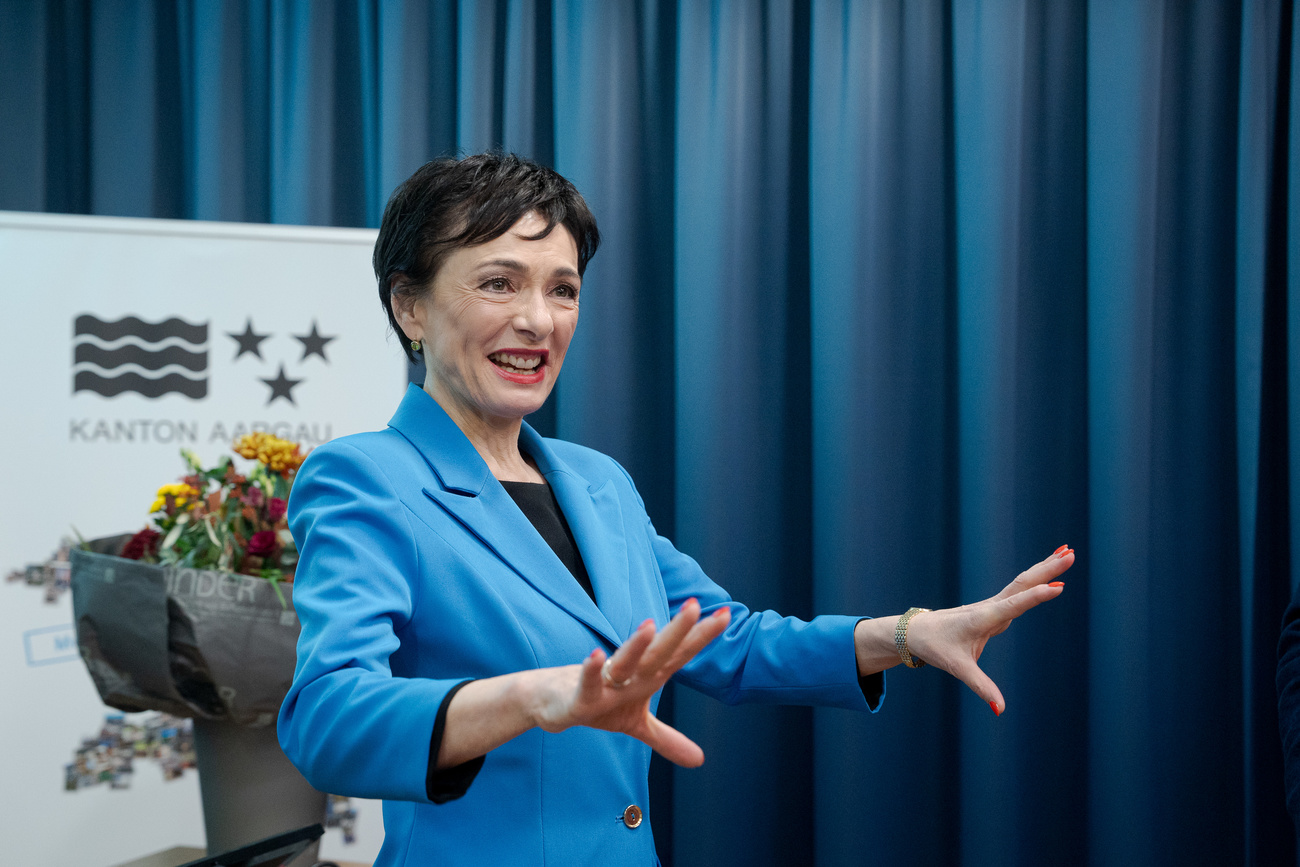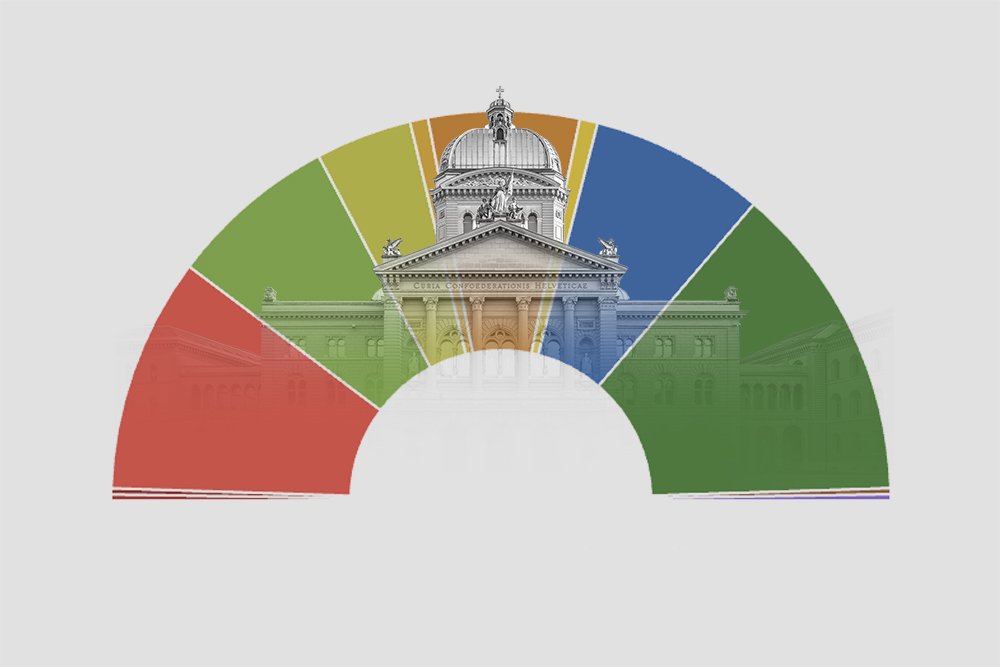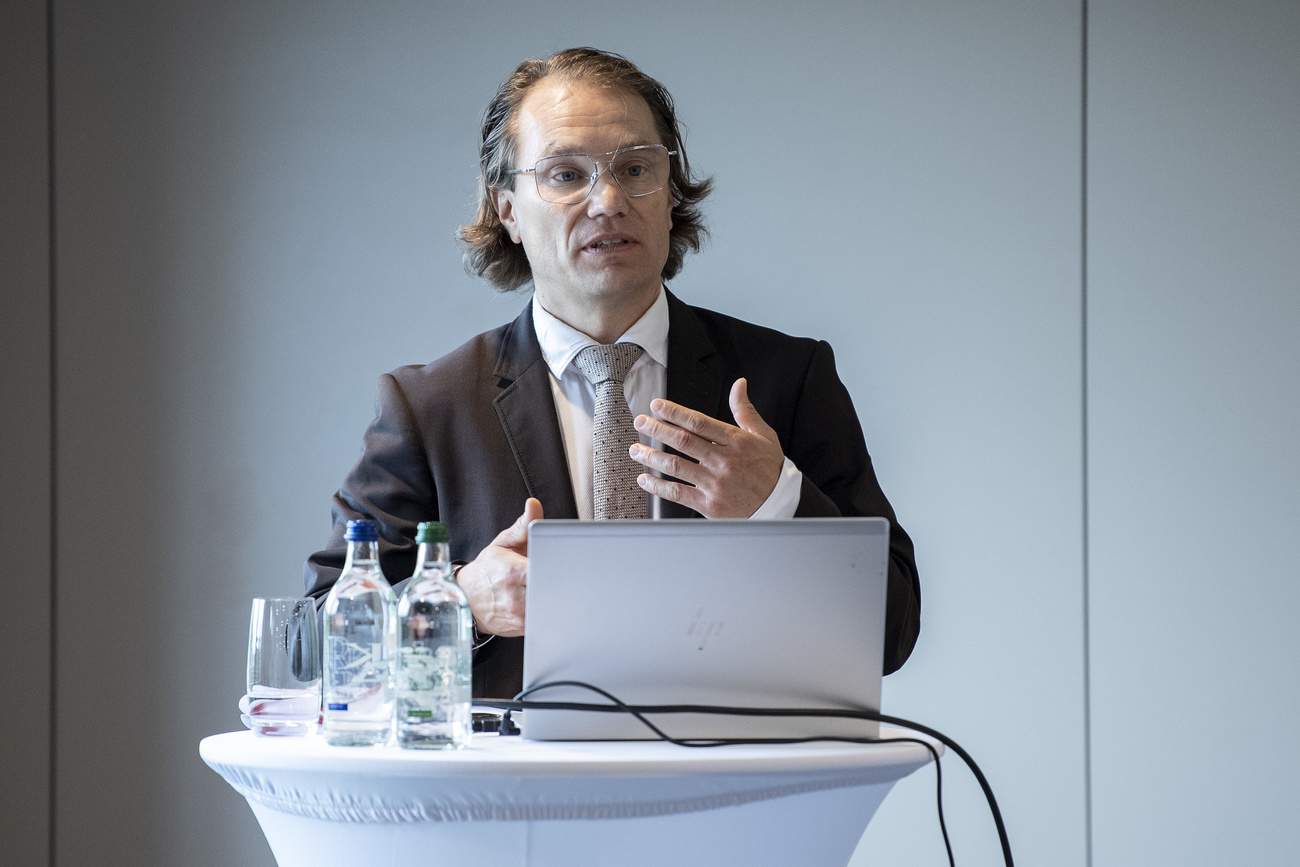Swiss federal elections: The Centre Party will act as a moderator

The Swiss Senate did not shift to the right as seen in the elections to the House of Representatives on October 22. Political scientist Lukas Golder analyses the balance of power in the next parliamentary term.
SWI swissinfo.ch: The federal parliamentary elections are now over. Who are the winners and losers?
Lukas Golder (L.G): The big winner in these federal elections is the Centre Party, which has made progress in both houses of parliament. The party strengthened its lead in the senate. It is now in a position to act as a moderator between the two chambers, a role that is absolutely essential. However, it will have to prove that it is indeed capable of finding majorities. It promised to do so during the campaign, by taking a stance against polarisation and advocating the search for solutions.

More
Elections 2023: results
Conversely, the Greens are the losers in both chambers. The party suffered severe losses in terms of electoral share, falling below the 10% mark. The defeat is less glaring in terms of seats, and the party is still stronger than before the green wave of 2019.
However, the failure of Geneva senator Lisa Mazzone to get re-elected is the symbol of the green party’s defeat. Not only does the party no longer have the number of elected members needed to form a parliamentary group in the senate, but it has also lost a crucial figure who represented a real hope for the environmental lobby.
SWI: How do you explain the Centre’s success?
L.G: There are various factors. It’s not just the party’s new name, which is primarily a political marketing tool. The merger with the Conservative Democrats didn’t win it a huge share of the electorate, but it did show that the party is capable of change.
By emphasising the theme of the family, the Centre Party has succeeded in recruiting new political elites: strong women capable of winning majority elections, like the new Aargau senator Marianne Binder-Keller.
The Centre’s President, Gerhard Pfister, has also played a key role in this success, by repositioning the party. By launching his initiative to introduce a brake on healthcare costs, he has also targeted the most important issue for these 2023 federal elections.

SWI: Although the Radical Liberals succeeded in safeguarding their position, they lost more share than expected. Did their alliance with the Swiss People’s Party backfire?
L.G: The alliance between the Radicals and the Swiss People’s Party showed weaknesses, particularly in Zurich, where the right lost its senate seat. These elections have shown that the Radicals need to position themselves a little more clearly in the centre. Like other traditional parties with an older electorate, they needs to mobilise the next generation. However, it has not succeeded in renewing itself by bringing in new ideas. As a result, it runs the risk of being seen as the Swiss People Party’s rearguard.
SWI: Despite its landslide victory in the House of Representatives, the Swiss People’s Party failed to make any inroads in the Senate, where it remains a minority party. Why did this happen?
L.G: The Swiss People’s Party cannot find the recipe for winning majority elections in German-speaking Switzerland. One of the reasons for this is that the conservative right is unable to work with the centre-right parties. The electorate seems to like the party’s polarised style in the House of Representatives, but is not convinced that it can work to represent a canton.
It should also be noted that the Swiss People’s Party is still a major party in rural areas. However, our lifestyles are increasingly urbanised, digitalised and globalised, not only in the big cities but also in the smaller towns. In this environment, the conservative right is not as successful.
SWI: What will be the consequences of the debacle suffered by the Greens in these elections?
L.G: In the long term, the electorate continues to want solutions to combat global warming. The trend shows that the Greens, like the Liberal Greens, have never lost two elections in a row. When they have lost, they have always come back stronger than before. This is likely to continue, as climate change will be a key issue over the next 20 years.
However, the Greens will have to reform themselves, improve the way they organise their campaigns and review their positioning. The division between the Greens and the Liberal Greens is a handicap for environmentalists. If the electoral strength of the two parties were added together, they would be strong enough to claim a seat on the Federal Council.
SWI: Despite a slight increase, the Social Democrats were unable to compensate for the Green Party’s losses. As a result, the left has been weakened in parliament and the right strengthened. Will this new configuration radically alter the political balance of power?
L.G: No, these elections change nothing in the balance of power. The left is still in a minority, as it always has been in Switzerland. To find solutions, it has to form alliances with other political groupings. Between 2011 and 2019, it often found social-liberal solutions with the Radicals. In recent years, it has tended to form an alliance with the Centre, and this is likely to continue for the next legislature.
SWI: With the House of Representatives more to the right and the Senate more centre-left than before, are we going to see more deadlock in parliament?
L.G: I don’t think so. To avoid deadlock, you need common ideas, and there are some. For example, I can see common ground between the right and the centre in the area of financial policy. There is also the possibility of finding compromises between the left and the right by isolating the Swiss People’s Party, on health policy or on the European question.
Even on climate policy, I don’t see any risk of deadlock, but rather the possibility of forging new alliances, because most parties are aware of the risks posed by global warming.
SWI: Is this slightly more right-wing Parliament good or bad news for the Swiss Abroad?
L.G: I think it’s good news if we’re trying to find solutions. There are also possible new alliances in the field of digital politics. This is an important area for the diaspora, which is fighting in particular for the introduction of electronic voting. I hope that parliament and the Federal Council will try to find new compromises, which the people will ultimately have to endorse.

In compliance with the JTI standards
More: SWI swissinfo.ch certified by the Journalism Trust Initiative








You can find an overview of ongoing debates with our journalists here . Please join us!
If you want to start a conversation about a topic raised in this article or want to report factual errors, email us at english@swissinfo.ch.